5-12-22
True Heroes: Occupation in “Czech that Film”
By Diane Sippl
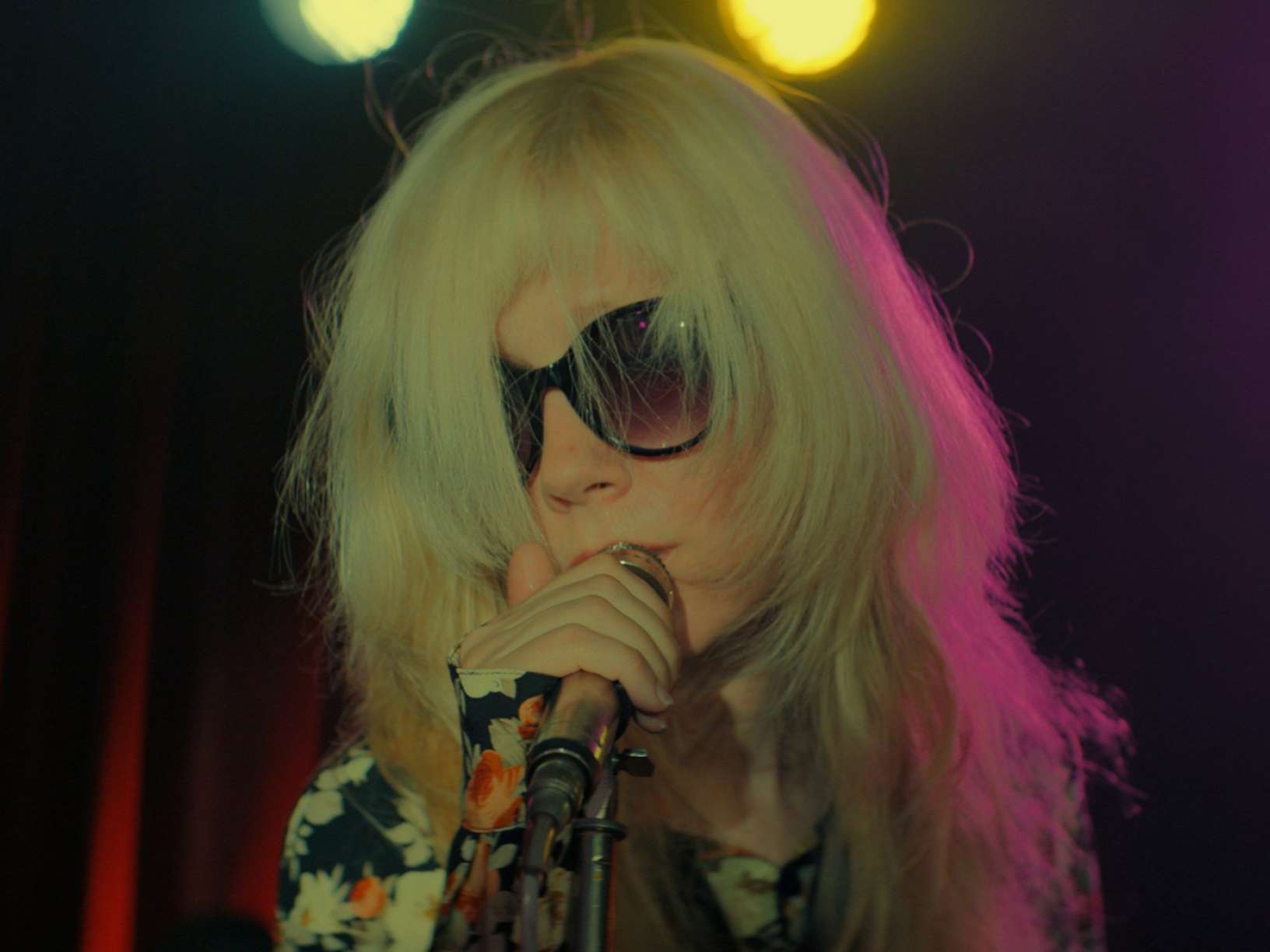
The 11th edition of the largest Czech cultural event in the U.S.—“Czech That Film”—will celebrate its Los Angeles Grand Opening with a gala reception and screening of a Czech-French co-production at the Théâtre Raymond Kabbaz, 10361 W. Pico Blvd, Los Angeles, CA 90064, on Friday, May 13th at 7:00 pm. The 80-minute Even Mice Belong in Heaven, a delightful stop-motion animation film directed by Jan Bubeníček and Denisa Grimmová, is in English and can be enjoyed by the entire family. Tickets are available at https://czechthatfilmattrk.eventive.org/schedule/624f18948b716e0030b837a3/tickets. This film about two mortal enemies shows a path to respect, understanding, and hope. Additional films will be screened online at http://www.czechthatfilm.com until May 20, 2022. Not to be missed is the 2021 multi-award-winning feature, Occupation (Okupace), a highly original work that is at once timeless, evocative of three precise periods in Czech history, and as topical as the morning headlines.
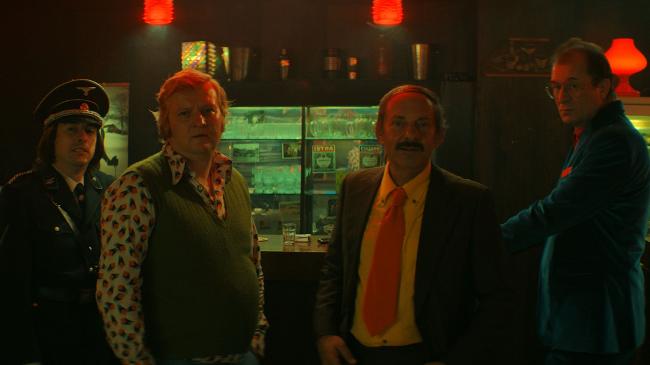
If all the world’s a stage, then maybe theater people know it best—or worst—depending on how you look at it. And while they may be the first to contend with each other’s egos, they also know how to spot a heroic act when they see one—or don’t see one. Such paradoxes and tragic ironies are at the core of the debut feature film by Michal Noheil (formerly a student of New Wave director Věra Chytilová). Occupation is a historical satire set within the confines of a Czech theater establishment, from the auditorium to the dressing rooms to the hallways that might as well be the blind alleys of Shakespeare’s Venice (or Kafka’s cobblestoned labyrinths) for all that lurks around the corners. There, a particularly gifted ensemble of screen actors delivers an uproarious performance of a night from hell during the “Normalization Period” of Czechoslovakia’s occupation after the Warsaw Pact invasion and Soviet takeover of the country in 1968.
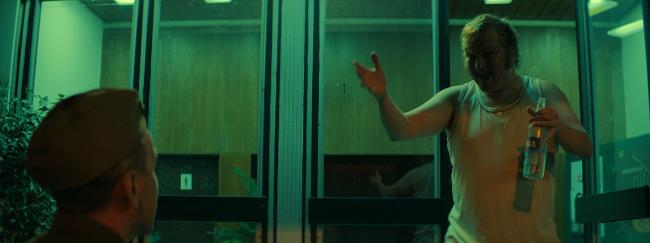
We could call the situation on the screen a post-performance denouement, because the action from the stage spills over into demonstrative bickering and in-fighting (as well as solidarity, when they can all get onto “the same page”) within the theatre company; yet for the longest time the troupe pitches its venom against an individual invader, the proverbial Russian officer (a veteran of WWII) who crashes their after-party and their world. He touts a familiar line, more or less that “We Russians liberated you from the Nazis (and we have the strength and power to do it again), so you should be grateful.”
The drama—boisterous, bawdy, bloody—makes full use of costumes, characters, and scenarios of the night’s play (set during WWII) both on and off the stage, and the ambiguity (between the 1945 “rescue” by Russia and its 1968 invasion of Czechoslovakia) is both part of the fun and part of the horror, creating a peculiar kind of suspense from moment to moment that also unexpectedly spins the film’s theme around as it shifts targets of accusation.
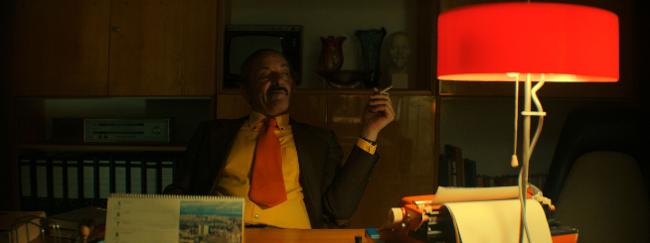
These days we may be used to looking at bystanders as complicit oppressors; at least in Nazi Germany, Vichy France, and Arrow Cross Hungary, those who didn’t openly resist Hitler and his counterparts (or who didn’t covertly protect those who would be deported, tortured, and killed) were suspected as fascist co-conspirators. Yet we may not often be ready to accuse subjugated nationals of their own cowardice. Occupation coyly raises the question of self-blame—not as “survivor guilt” but as something a little closer to “negligence guilt.” Is it possible to blame members of the Czech literati—Bohemian actors, playwrights, directors, and producers, for example—for “dodging” the Russian tanks that rolled into the Prague Spring with thunder and stormed the country with over twenty years of occupation?
In 1938 Czechoslovakia faced Hitler’s demand to cede the country’s Sudetenland to Germany or accept war, and the Czechs were invaded by the spring of 1939 and occupied by Nazi Germany, which also annexed part of the land when British and French Allies succumbed in a deal to appease Hitler. Many were killed and some fled, but over 97% of the occupied Sudetenland adults voted for the Nazi party in elections. Three decades later the Czechs faced their “liberators,” the Russian army, as their new occupiers.
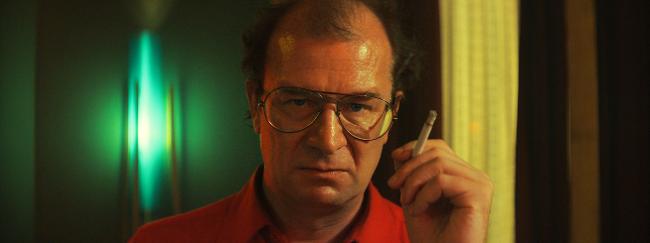
A widely praised victim of Czechoslovakia’s WWII occupation was Julius Fučík, a writer and Communist activist in the resistance who was imprisoned, tortured, and executed by the Nazis. He kept a diary, Notes from the Gallows, which was adapted for the play on the stage in Occupation. While the play’s director, feeling he was coerced into presenting a Soviet “puff piece” about the glorified hero-turned-icon in the post-invasion era, considers his work as agit-prop drivel, the result of “mediocre actors and mediocre direction,” a student turns up asking to interview him, since he used to be a revered avant-garde theatre artist. She is the grand-niece of Fučík and wants to know how those presenting the play would define “hero.”
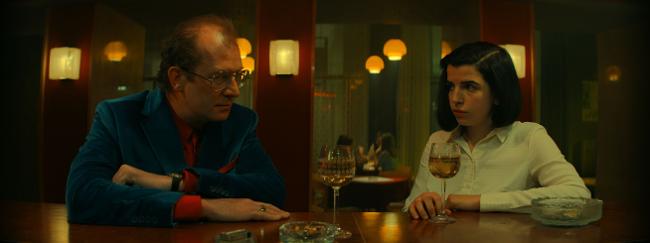
It’s an uncanny bit of casting—she is played by Antonie Formanová, the grand-daughter of Miloš Forman, the Czech New Wave film director who fled the country when the Prague Spring of his Fireman’s Ball regressed to a “long winter” of Soviet domination. Occupation sees the Czech national character as both betrayed and incapacitated in the country’s history of invasions, but nonetheless, non-heroic, traumatic as that past may be. Its Velvet Revolution may look like a smooth ride compared to the latest outcome of Ukraine’s Orange Revolution. In fact, another note of ingenious casting is Alexei Gorbunov as the Russian officer in Occupation—he is a famous Ukranian actor who lives in Kyiv, esteemed for his role in Nikita Mikhalkov’s Russian film, 12. Written as near-caricature, his drunken performance in Occupation is spell-binding and spookily convincing.
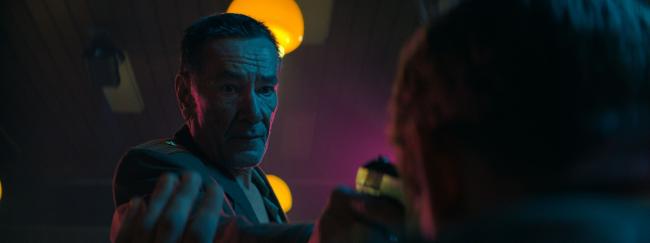
Part of that success is that the whole film feels a little bit tipsy from beginning to end, dreamy in a punkish psychedelic way owing to its music by Hank Manchini, Kill the Dandies, and La Petite Sonja and the spontaneous, stylized bar room dancing. Deep color filters and theatrical lighting in Jan Baset Střítežský’s cinematography add to a retro look but also lend an out-of-time feeling that floats through the atmosphere.
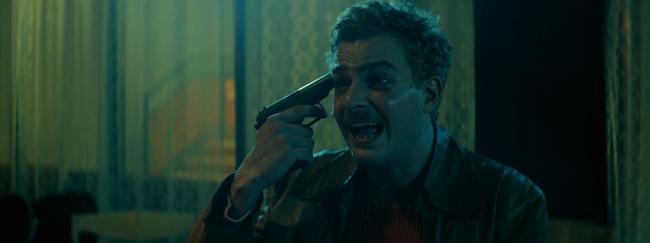
This is all in contrast to an irreversible chain of over-the-top reactions and misdeeds on the part of the thespians that escalates at breakneck speed as their off-stage actions box them in. The actor of the play’s hero, Julius Fučík (Cyril Dobrý), takes his character off the rails (in the after-party drama) in retaliation against the intruding Soviet officer who, in a near drunken stupor, corners the innocent young student with sexual offenses and turns out to hold a weapon. Could a hero save them? Still in character as the immortalized Fučík, the stage actor makes a clumsy attempt, but the theatre director (Martin Pechlát), obsessed with Czech bumbling and cowardice, takes another tack, leading his ensemble straight “into the wind” as if to save the Czech national identity.
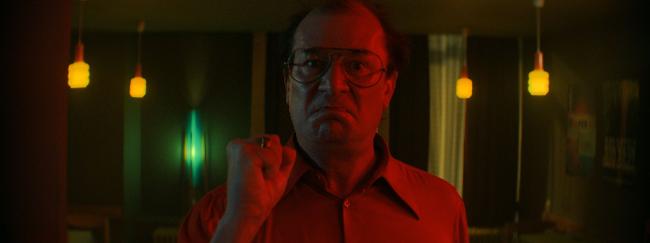
“The idea that heroism is a single act that changes everything is nonsense,” claims co-screenwriter Marek Šindelka. “True heroism should be a persistent process.” Having co-written Occupation for its production well before Putin’s invasion in March, 2022 of the Czech Republic’s neighbor to the east, Šindelka salutes today’s Ukrainians as true heroes for bravely and relentlessly standing up for their sovereignty.
Occupation (Okupace)
Director: Michal Nohejl; Producers: Julie Žáčková, Jan Hlavsa; Screenplay: Vojtěch Mašek, Michal Nohejl, Marek Šindelka; Cinematographer: Jan Baset Střítežský; Editor: Petr Turyna; Sound: Sandra Klouzová; Production Design: Tomás Svoboda; Costume Design: Josephina Bakošová; Music: Hank J. Manchini, Kill the Dandies, La Petite Sonja.
Cast: Otakar Brousek, Cyril Dobrý, Alisher Fakhrijev, Antonie Formanová, Aleksey Gorbunov, Tomás Jerábek, Stepan Nauhaev, Pavel Neskudla, Martin Pechlát, Lucie Roznetínská, Anton Tataru, Vlastimil Venclík, Tomás Vykopal, Barbora Wochnerová, Julie Zácková.
Color, widescreen, 95 min. Czech, Russian, and German with English subtitles.